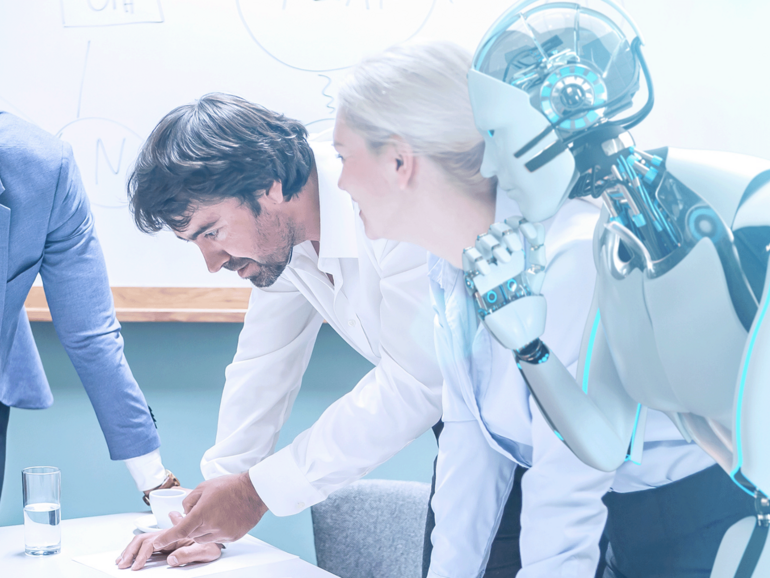The rise of the union-curious worker, and how to win them over
In the U.S., front-line workers’ attitudes toward unions are softening, especially among people under 30. Here’s what they want from their workplaces.

Faculty
Thomas A. Kochan is the Post-Tenure George Maverick Bunker Professor at the MIT Sloan School of Management and a faculty member in the MIT Institute for Work and Employment Research.
Kochan focuses on the need to update America's work and employment policies, institutions, and practices to catch up with a changing workforce and economy. His recent work calls attention to the need for a new social contract at work, one that anticipates and engages current and future technological changes in ways that build a more inclusive economy and broadly shared prosperity. Through empirical research, he demonstrates that fundamental changes in the quality of employee and labor‐management relations are needed to address America's critical problems in industries ranging from healthcare to airlines to manufacturing. His most recent book is Shaping the Future of Work: A Handbook for Action and a New Social Contract (Routledge, 2021).
He is a member of the National Academy of Human Resources, the National Academy of Arbitrators, and past president of the International Industrial Relations Association and the Industrial Relations Research Association. Currently he is member of the MIT Task Force on Work of the Future.
Kochan holds a BBA in personnel management as well as an MS and a PhD in industrial relations from the University of Wisconsin.
Díaz-Linhart, Yaminette, Thomas Kochan, Arrow Minster, Dongwoo Park, and Duanyi Yang. British Journal of Industrial Relations. Forthcoming.
Luis Nuñez, Paulina Lopez Gonzalez, Yaminette Díaz-Linhart, and Thomas Kochan. New York, NY: May 2025. Download Full Report.
Kochan, Thomas. Des Moines Register, March 2025.
Kochan, Thomas and John S. Ahlquist. Harvard Business Review, October 7, 2024.
Kochan, Thomas. CommonWealth Beacon, October 2, 2024.
Kochan, Thomas. Milwaukee Journal Sentinel, September 2024.

In the U.S., front-line workers’ attitudes toward unions are softening, especially among people under 30. Here’s what they want from their workplaces.

From ChatGPT to advanced industrial design AI tools, companies in every industry are turning to generative AI to cut costs and increase productivity.
Professor Emeritus Thomas Kochan said: "It's just another example of this administration's willingness to trod on worker rights and to squash any effort to challenge the government's actions. We want to encourage employees, and those who represent employees, to speak honestly and candidly on issues of concern to the workforce and the people they serve."
Professor Emeritus Thomas Kochan said: "The Demoulas family still has ownership of the company, but they've added some private equity professionals to the board. And so that's what has some people worried, that there may be a shift toward a private equity strategy that is much more short-term and much more focused on how they can pull money out of the company for the owners."
"Finance and accounting are prime targets for expansion of AI use," said Professor Emeritus Thomas Kochan. But if you start seeing AI as a tool instead of a hurdle, you might have more success in your job hunt. "The value a talented, young, entry-level analyst can add is that they use their judgment to evaluate what AI tools produce," Kochan said.
Professor Emeritus Thomas Kochan told GBH News an attempt to turn Market Basket into a company that maximizes short turn return would be "a disaster for Market Basket. Private equity is looking for short term returns. That's its specialty," Kochan said. "This is a company that was built over decades." Kochan urged the parties to consult an external mediator and resolve the issue quickly.
This course aims to prepare you, and your organization, for an evolving workplace as it investigates its impact on social, legal, and economic policy. Over six weeks, you’ll explore the reasons why workplace advancements require a new, updated social contract — the mutual expectations and obligations workers, employers, and society have for work relationships — so that the quality of jobs can be improved, inequalities can be addressed, and everyone can prosper.
Digital transformation marks a radical rethinking of how technology, people, and processes combine to create and deliver value. This exciting digital transformation education course introduces the concept of Algorithmic Business Thinking as a toolkit, mindset and digital language for uniting and augmenting your human and digital capabilities that helps you discover and uncover new opportunities throughout your digital transformation journey.